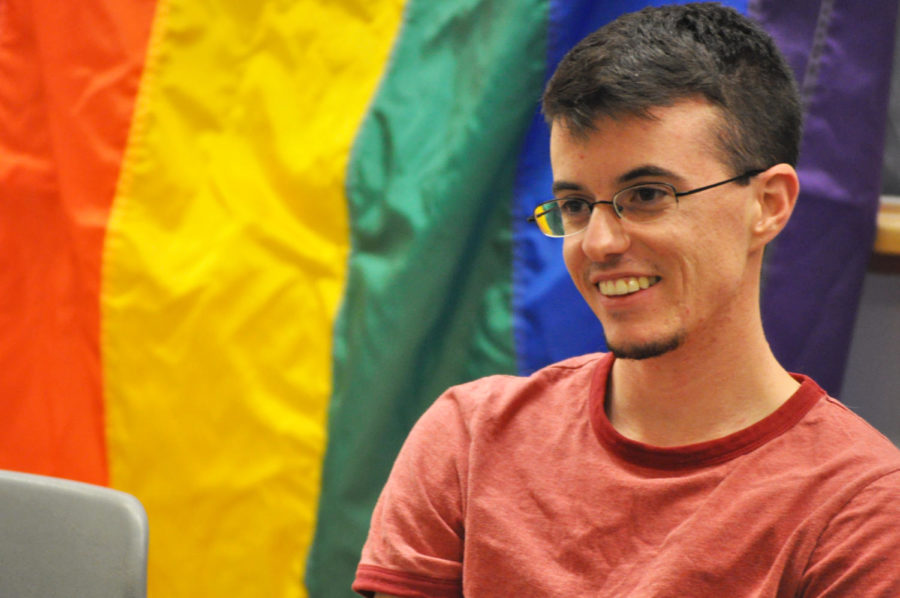Speakers Bureau panels put a face to LGBT students, challenges they face
Photo illustration: Dani Berger/Iowa State Daily
Uri Donnett, a fourth year veterinary student, is a panel member on the LGBTSS Council. The panel visits classes across campus to educate and enlighten students on life in the LGBT community.
October 29, 2013
The speakers bureau program through the LGBT Student Services center gives students an opportunity to put a face to the ideas and identities of the LGBT community.
The speakers bureau sets up student panels that can be requested through the LGBT Student Service’s website. Almost any group can make requests and panels are often organized for classes, residence hall meetings and greek chapter meetings said Brad Freihoefer, LGBT Student Services coordinator.
“What we like to create is an open and welcoming atmosphere to address any questions or concerns that people have about sexuality and gender,” Freihoefer said. He said the speakers bureau’s primary goal is to educate and provide awareness of the experiences of LGBT students.
Panels usually have three to five people who share their experiences and answer audience questions. Freihoefer said he likes having the students be able to lead the conversation on the panel. It helps get answers to questions that have been on people’s minds and can change misconceptions about LGBT people.
Uri Donnett is a fourth-year veterinary medicine student who has been sitting on speakers bureau panels since his undergraduate work at Michigan State. He said by sharing his story he can hopefully help start a conversation and improve some people’s situation
“The best way to help improve things is to change the cultural climate, and I feel like by sharing my story I can do that and at least introduce people to ideas that they may not have heard,” Donnett said.
Most of the speakers bureau requests are for classes, Freihoefer said. They have had requests as early as
8 a.m. and as late as 11 p.m., but most are in the noon hour and from 6 p.m. to 8 p.m.
“I’ve sat in classes that had 10 people, and I’ve been in a lecture hall I think with 200 people so you kind of hit it all,” Donnett said.
Donnett said the larger classes are easier and people tend to open up with more questions.
There are 15 students currently signed up to sit on panels, and Freihoefer said there should be more after the upcoming training. Having a rotation of students gives more flexibility to set up panels, he said.
Freihoefer said the speakers bureau helps connect students to resources and has students come into his office regularly who just heard about his office and the LGBT organizations.
Sarah Miller, senior in genetics, went to a panel at the same time that she was starting to come out to friends and family. She stayed afterward and talked to one of the panelists for 30 minutes. She said it made a huge difference for her when she really needed it.
“My hope in joining Speakers Bureau was that I could be that to someone else — a resource, a role model, or even just someone to talk to,” Miller said.
Students who sit on the speakers bureau panels are not always able to answer questions about their entire identity. Donnett said it is important to emphasize that the panelists are each one person who has his or her own lived experience.
“Having the opportunity to share my story has made me much more confident in myself,” Miller said. “It takes a lot to talk about really personal things in a lecture hall of 200 people. It makes everything else seem a little less scary.”







